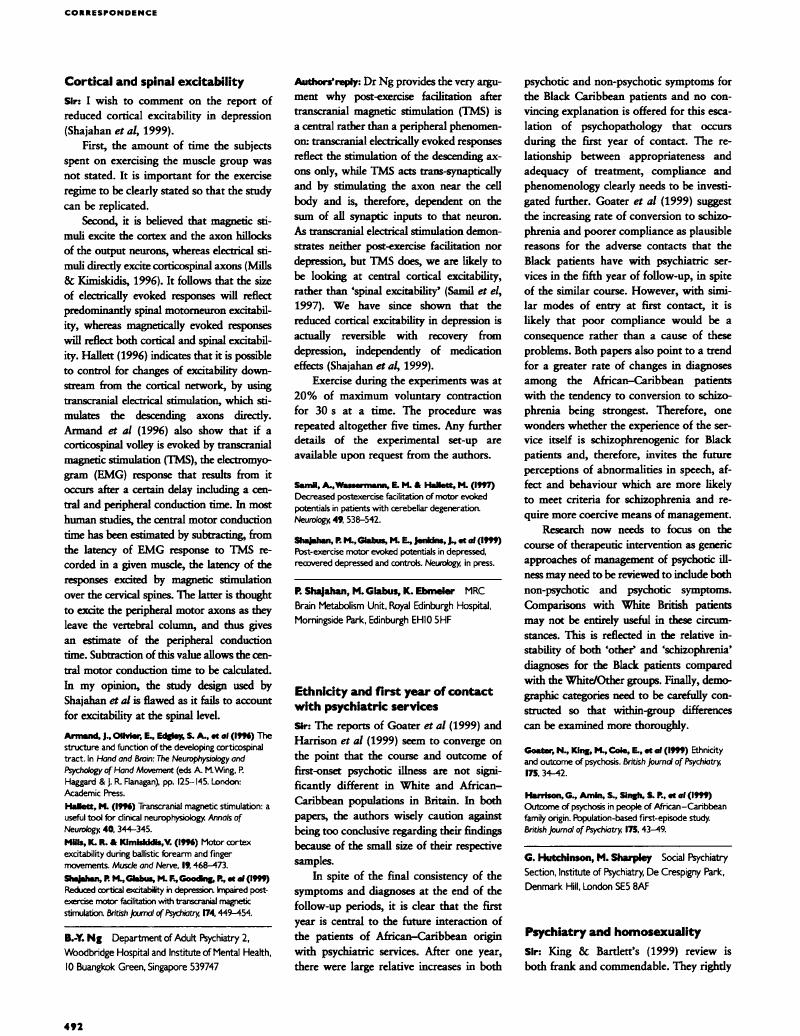No CrossRef data available.
Article contents
Author's reply
Published online by Cambridge University Press: 03 January 2018
Abstract
An abstract is not available for this content so a preview has been provided. Please use the Get access link above for information on how to access this content.

- Type
- Columns
- Information
- Copyright
- Copyright © 1999 The Royal College of Psychiatrists
References
Samil, A., Wassermann, E. M. & Hallett, M. (1997) Decreased postexercise facilitation of motor evoked potentials in patients with cerebellar degeneration. Neurology
49, 538–542.Google Scholar
Shajahan, P. M., Giabus, M. E., Jenkins, J., et al (1999) Post-exercise motor evoked potentials in depressed, recovered depressed and controls. Neurology in press.CrossRefGoogle Scholar



eLetters
No eLetters have been published for this article.